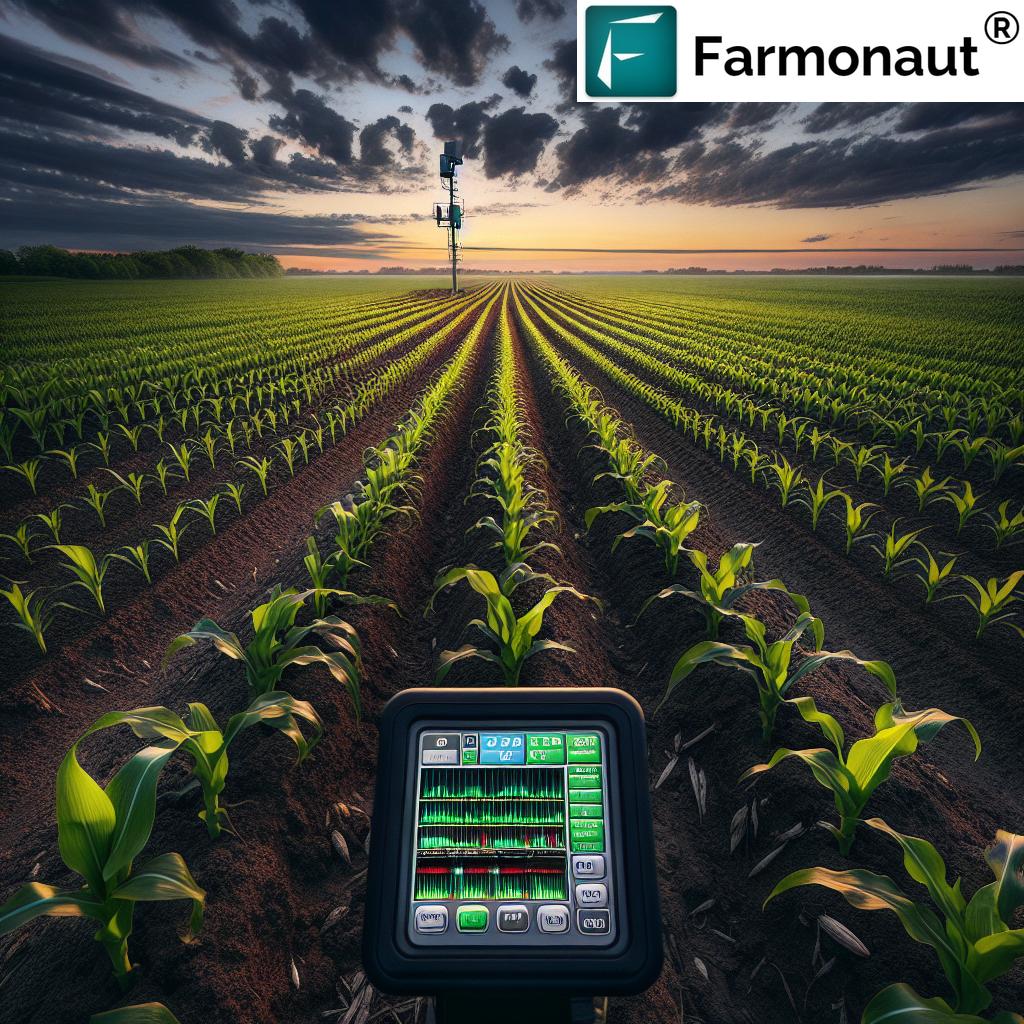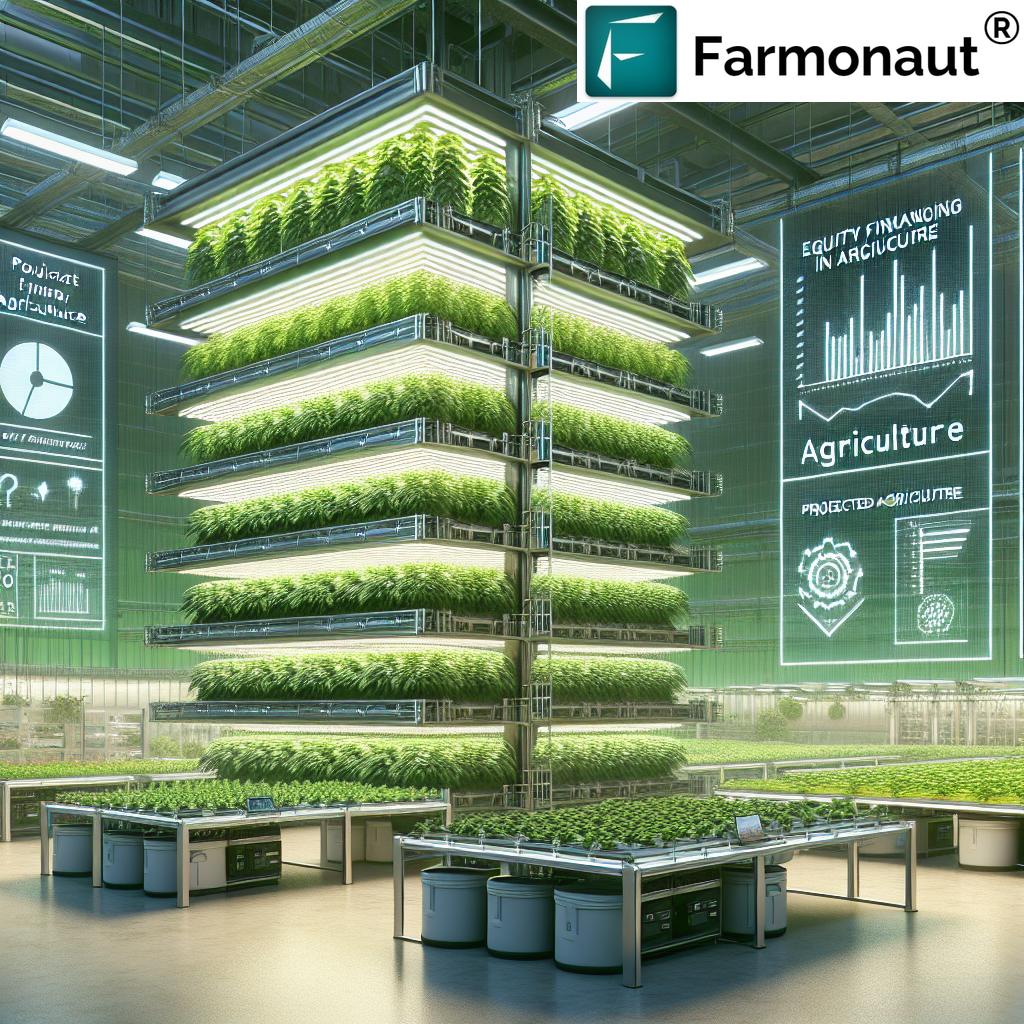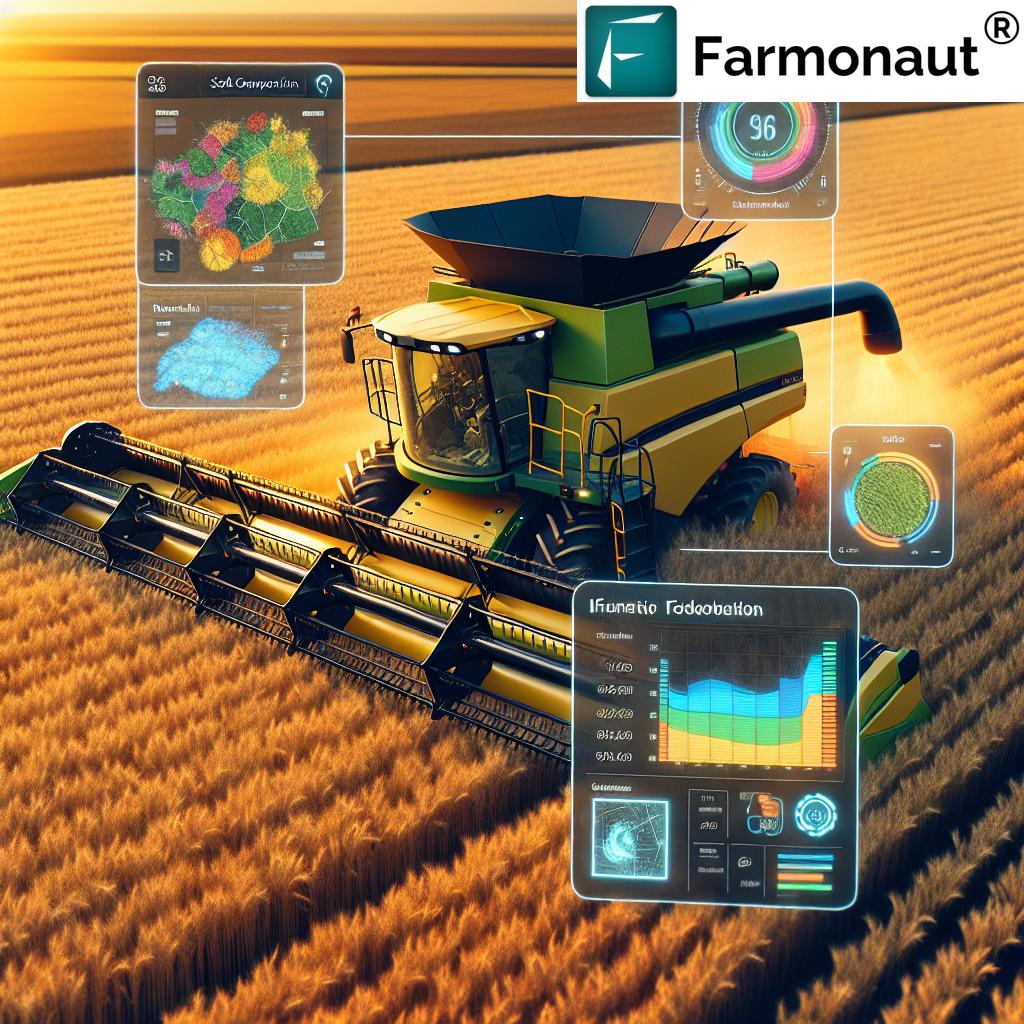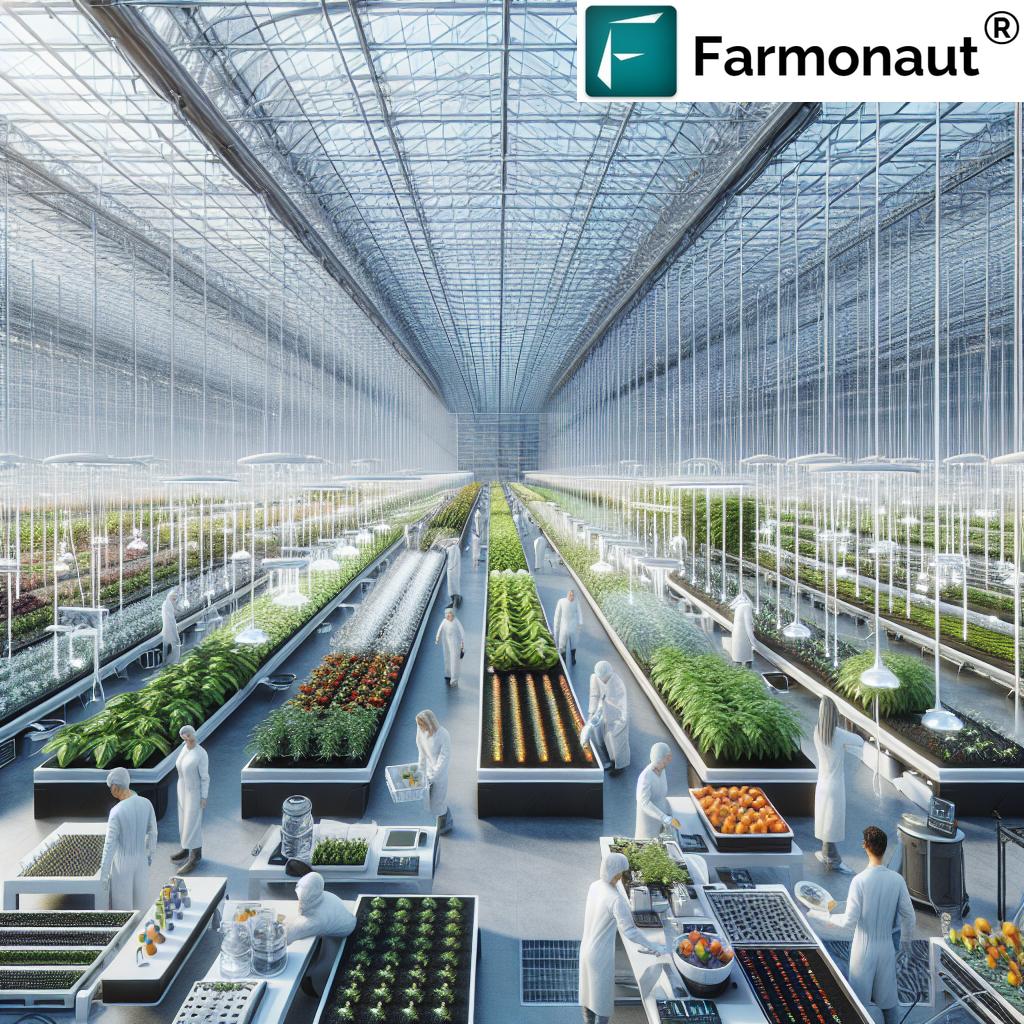Calgary Urban Agriculture: The AI Revolution in Calgary’s Food Future (2025 & Beyond)
“By 2025, over 60% of Calgary’s urban farms will integrate AI for crop monitoring and yield optimization.”
Introduction: Calgary Urban Agriculture at the Crossroads of Innovation and Sustainability
Calgary urban agriculture is undergoing a remarkable transformation. In recent years, Calgary has emerged as a dynamic hub for innovative agricultural practices. By blending traditional farming with cutting-edge technology, Calgary’s approach is redefining urban agriculture, making it central to the city’s growth, sustainability, and community resilience. In 2025, agriculture in Calgary is not just about food—it is about integration, technology-driven efficiency, and setting new global benchmarks for sustainable urban farming.
Calgary urban agriculture has grown to include diverse systems: multi-layered farms, sophisticated vertical spaces, and even AI-powered rooftop food production. This sector, now a focal point in Calgary’s future, emphasizes reducing dependency on distant supply chains, enhancing local food security, and supporting the city’s ambitious climate action targets. As we explore the AI revolution within Calgary agriculture, it becomes clear that Calgary is not just following trends—it is helping to set standards for agriculture in cities worldwide.
Within the vast landscape of Calgary urban agriculture in 2025, new AI-driven practices, sustainable methods, and innovative technologies are redefining city-wide food systems, community health, and environmental stewardship. Calgary’s urban sector leverages artificial intelligence, precision data solutions, and integrated management tools to boost productivity, minimize environmental impact, and ensure a resilient local food system for its growing population.
Urban Agriculture in Calgary: A New Frontier
Calgary urban agriculture is evolving beyond mere community gardens and small local farms. Today, we see sophisticated systems that include:
- Vertical farming: Multi-tiered, indoor environments that optimize space and boost food production capacity within the city.
- Rooftop gardens: Repurposing underutilized urban spaces to grow fresh produce and support local food networks.
- Controlled environment agriculture facilities: Climate-controlled greenhouses and fully automated indoor setups that use data-driven technology to maximize efficiency and reduce resource use.
These initiatives are designed to support Calgary’s increasing population with locally grown produce, strengthening food security and reducing reliance on long-distance supply chains. The transformation is not just about increasing output; it is about enhancing resilience against disruptions, supporting community engagement, and contributing to the city’s vibrant urban spaces.
Key Elements of Calgary Urban Agriculture’s Growth
- Population Support: Urban farms are designed to feed Calgary’s increasing city residents with fresh, nutritious produce.
- Reducing Reliance on External Supply Chains: By growing food locally, Calgary urban agriculture decreases carbon footprints and travel time from farm to table.
- Revitalizing Urban Spaces: Transforming rooftops and vacant lots adds value while promoting biodiversity and creating green corridors across the urban landscape.
- Enhancing Community Engagement: Urban agriculture fosters educational opportunities, volunteer programs, and community health awareness.
- Economic Diversification: Innovative urban farming systems generate local jobs in farm management, AI development, and tech-driven resource optimization.
Sustainable Practices in Calgary Agriculture: Nurturing the Urban Ecosystem
By 2025, Calgary’s urban agriculture sector sets a powerful example of sustainable practices and environmental stewardship. Every initiative, from vertical farms to small-scale gardens, prioritizes harmony between urban growth and ecosystem health.
Paramount focus on sustainability transforms Calgary agriculture into an ecosystem that not only produces food but also rejuvenates its environment. Urban farmers and professionals are increasingly dedicated to combining organic methodologies, water-saving technologies, and data-driven systems. These approaches help maintain soil health, monitor water use, and create a positive production cycle that contributes to biodiversity and community resilience.
Essential Sustainable Methods Used in Calgary Urban Agriculture
- Water-Efficient Irrigation: Automated drip systems, moisture sensors, and AI-powered scheduling ensure water is used precisely—reducing overall consumption.
- Organic Fertilization & Pest Management: Natural compost and biological controls for pests, minimizing chemical use and maintaining ecosystem health.
- Soil Health Monitoring: Sensors and data analytics track soil composition, moisture levels, and nutrient status, allowing precise interventions and supporting sustainable yields.
- Local Input Sourcing: Sourcing seeds and materials locally cuts down on shipping emissions and ensures integration with Calgary’s unique regional climate.
- Zero-Waste Initiatives: Circular farm models and composting minimize waste output and encourage responsible resource management.
Optimal integration of these practices ensures that Calgary’s urban farming systems contribute positively to the region—offering reliable food production while acting as carbon sinks, pollinator habitats, and community assets.
Explore how carbon footprinting in urban agriculture strengthens sustainability and regulatory compliance via Farmonaut’s Carbon Footprinting Solution—enabling farms to track and reduce emissions with real-time satellite insights.
AI-Driven Advancements in Calgary Urban Agriculture (2025): How Technology Powers the City’s Food Revolution
In 2025, Calgary AI in agriculture has become the cornerstone of every successful urban farm. With each passing year, farmers and urban growers are increasingly embracing a technological transformation powered by artificial intelligence, machine learning, and data analytics.
Modern agriculture in Calgary harnesses the full potential of AI for everything from crop health monitoring to resource management. By leveraging the integration of hardware (like drones and sensors) and software advances, urban farms can:
- Pinpoint Crop Health Issues Early: Machine learning models analyze satellite imagery and on-site sensor data to identify stress, pest infestations, or nutrient deficiencies even before symptoms appear.
- Forecast Yields Accurately: Predictive algorithms enabled by AI and large-scale data analytics help growers estimate yields for market planning and supply management.
- Optimiz Resource Use: Resource management tools powered by AI precisely allocate water, fertilizers, and labor efforts to boost output and cut waste.
- Automate Labor-Intensive Tasks: From sowing seeds to targeted irrigation and even robotic harvesting, AI-enabled automation increases efficiency and allows humans to focus on higher-value decision-making.
How AI, Satellite Imagery & IoT Technology Are Used in Calgary Urban Agriculture
- AI-Integrated Satellite Crop Monitoring: Satellite imagery captured at regular intervals is processed by AI models to provide real-time maps of field variability, vegetation health (NDVI), and irrigation status.
- IoT Sensors for Detailed Environmental Tracking: On-field sensors continuously monitor soil, moisture, temperature, and other variables, streaming live data into centralized farm management platforms.
- Drones & Automation: Drones equipped with cameras and advanced imaging technology scan crops for pest hotspots, plant growth, and resource usage, relaying actionable data back to AI-powered management software.
- AI Advisory Systems: With platforms leveraging custom-built AI algorithms, farmers receive suggestions on optimal fertilizer application rates, irrigation intervals, and predictive crop management.
- End-to-End Traceability via Blockchain: AI and blockchain integrated systems track the journey of agricultural produce across the food supply chain, ensuring transparency, food safety, and quality for consumers.
“Calgary’s AI-powered urban agriculture initiatives are projected to increase local food production by 40% within a single year.”
AI-powered precision solutions are delivering a dramatic boost in productivity and a significant reduction in waste. By 2025, over 60% of urban farms in Calgary use AI for real-time decision support, increasing overall harvests, reducing the environmental footprint, and accelerating the pace of local food system evolution.
Comparative Table: Impact of AI-Driven Technology vs. Traditional Urban Agriculture Methods in Calgary
| Farming Practice | Estimated Crop Yield Improvement (%) | Water Usage Reduction (%) | Labor Cost Savings (%) | Energy Efficiency Increase (%) | Sustainability Score | Year of Implementation (Estimated) |
|---|---|---|---|---|---|---|
| AI-Driven Urban Agriculture | 35–50% | 30–45% | 40–60% | 25–40% | 9/10 | 2023–2025 |
| Traditional Urban Agriculture | 5–15% | 5–12% | 10–18% | 8–12% | 6/10 | Pre-2020 |
The chart above highlights the significant quantifiable benefits of AI-powered urban agriculture in Calgary, showcasing just how quickly technology is redefining efficiency, sustainability, and productivity in the city’s food system.
Precision Technology Case Study: Automation & Resource Management
- Automated, AI-driven irrigation systems predict water needs daily, ensuring the right amount at the right time—improving yields and saving water.
- Drones and remote sensors allow farmers to minimize chemical inputs, combat pests early, and only fertilize areas in need.
- End-to-end digital management reduces supply chain losses and labor costs across all farm processes.
Interested in streamlining urban farming operations? Large-Scale Farm Management tools by Farmonaut offer city-wide monitoring using satellite tracking, allowing for integrated planning and operational efficiency across Calgary’s agricultural sector.
Economic & Environmental Impact of AI in Calgary Urban Agriculture
The integration of artificial intelligence in Calgary agriculture has a profound economic and environmental impact:
Economic Contributions
- Job Creation: AI-driven agriculture is generating opportunities in farm management, technology development, data analytics, logistics, and produce distribution—creating a dynamic workforce within the Calgary urban sector.
- Economic Diversification: The urban agriculture sector brings technological and entrepreneurial diversity, reducing dependence on traditional industries and boosting overall regional resilience.
- Reduced Cost & Improved Profits: Lowered labor and resource expenditure, coupled with higher, more reliable yields, enhance profitability for Calgary’s urban farms.
Environmental Stewardship
- Lower Carbon Footprint: By localizing food production, the city significantly reduces greenhouse gas emissions from food transport and refrigeration.
- Resource Efficiency: AI aids in the precise use of water, fertilizers, and power—further minimizing waste and environmental impacts.
- Green Corridors & Biodiversity: Urban agriculture contributes to green infrastructure, encouraging wildlife, and restoring micro-ecosystems within a busy city environment.
Compliance with emerging environmental standards is made easier with integrated digital solutions. If you are a Calgary-sector grower, Fleet & Resource Management by Farmonaut provides tools to optimize vehicles and machinery, ensuring minimum emissions and maximum operational efficiency.
Boosting Food Security and Reducing Risks
- Achieving Resilient Supply Chains: AI-driven traceability and real-time monitoring guard against supply disruptions, food fraud, and quality control failures.
- Food Security for all: Urban agriculture powered by data ensures city populations have reliable access to nutritious, local produce.
Transparency and authenticity are key in modern urban agriculture. Experience traceability solutions by Farmonaut—Product Traceability lets you track every stage of your crop journey, fostering trust and ensuring food safety across Calgary’s urban food network.
Our Satellite-Driven Technology for Calgary & Beyond
We at Farmonaut are dedicated to making satellite-driven insights accessible and affordable for all Calgary urban agriculture stakeholders. Using a blend of satellite imagery, AI analytics, blockchain, and advanced data solutions, we provide the backbone for Calgary’s leap into intelligent, sustainable, and scalable urban agriculture.
What Makes Farmonaut’s Technology Essential for Calgary Urban Agriculture?
- Cloud-based Real-Time Monitoring: From live crop health analysis (via NDVI and soil data) to operational efficiency checks—our mobile and web platforms empower decision-makers everywhere.
- Jeevn AI Advisory System: Tailored, actionable insights for crop planning, pest management, resource allocation and weather risk—relevant for Calgary’s dynamic climate and short growing season.
- Blockchain-Enabled Traceability: Unrivaled supply chain transparency—track Calgary produce “from seed to table.”
- Fleet & Resource Management: Our fleet monitoring solution keeps tractors and delivery vehicles optimized—maximizing sustainability and cost-savings.
- Environmental Impact Tracking: Farmers can monitor carbon footprints, resource use, and ecological impacts, aligning with city bylaws and green policy initiatives.
- Developer Integration: Our API and developer documentation let tech teams in Calgary easily plug real-time satellite and weather data directly into their own urban farming apps and dashboards.
- Financing Support: Urban farms can access loans and insurance more easily using satellite-based farm verification from Farmonaut.
Access our technology seamlessly via web and mobile apps—supporting every Calgary farmer, business, and community garden. Our systems are modular and scalable, fitting everyone from small plots to city-spanning networks.
For developers and business integrators, learn more about direct platform integration via our API and API Developer Docs.
2025 and Beyond: The Future of Calgary Urban Agriculture
The trajectory for Calgary urban agriculture is unmistakably high-tech, sustainable, and community-centred. As we look beyond 2025, several trends and opportunities stand out:
- Expanding Urban Farming: Expect to see more vertical farms, rooftop greenhouses, and multi-dimensional urban gardens popping up all over Calgary, reimagining food systems and city planning.
- Next-Generation AI Integration: AI systems will become smarter and more predictive, with enhanced ability to personalize advice, optimize city-wide resource allocation, and forecast trends in real-time.
- Smart Community Engagement: City residents play a growing role both as consumers and as data contributors—participating in citizen science, neighborhood growing initiatives, and transparent food networks.
- Environmental Resilience: Urban agriculture will act as Calgary’s most robust adaptive buffer against climate change, supply chain disruptions, and food system shocks.
- Global Standard Setting: By merging AI, precision agriculture, and sustainable practices, Calgary will serve as a global blueprint for cities wanting to replicate its success.
At Farmonaut, we’re excited to support Calgary as it redefines what’s possible in urban agriculture and sustainable food security for generations to come. As digital agriculture and AI continue to evolve, our commitment is to provide the real-time, actionable insights essential to every community, from micro-gardens to municipal leaders.
FAQ: The Calgary AI in Agriculture Revolution
What is Calgary urban agriculture?
Calgary urban agriculture involves cultivating, processing, and distributing food crops and livestock within the urban limits of Calgary. This includes vertical and rooftop farms, community gardens, and highly controlled indoor growing facilities. By 2025, these programs not only feed the local population but also strengthen food security and environmental sustainability.
How is artificial intelligence transforming Calgary agriculture?
AI in Calgary agriculture is used to optimize resource use, automate labor, predict yields, and monitor crop health using satellite imagery, sensors, and advanced analytics. This technology-driven approach increases productivity, reduces costs, and helps urban farms adapt to Calgary’s unique climate challenges.
What are the environmental benefits of AI-powered urban agriculture?
AI-driven management minimizes unnecessary resource use, reduces emissions, and promotes sustainability by enabling precision agriculture. It also helps track carbon footprints and improves compliance with environmental regulations within Calgary’s food system.
How does urban agriculture in Calgary support food security?
By producing fresh food locally, urban agriculture lowers the city’s dependency on long-distance supply chains, ensuring consistent access to nutritious foods—even in times of global disruption or supply chain crisis.
Can small urban farms and gardens in Calgary benefit from AI?
Yes! AI tools, from basic monitoring apps to complex satellite-driven analysis, empower even small-scale urban farmers and community gardens to maximize yields and minimize waste. Farmonaut’s platform is accessible to farms and gardens of all sizes in Calgary.
Is Farmonaut accessible for Calgary-based developers and urban agriculture startups?
Absolutely. Our API and API Docs allow anyone in Calgary’s agri-tech community to integrate satellite data and AI insights into their own digital farming solutions for greater scalability and flexibility.
Where can I get started with satellite monitoring and AI for urban agriculture in Calgary?
Download the Farmonaut App or access our web platform to start using advanced monitoring, planning, and management solutions specifically designed for urban farmers in Calgary.
Conclusion: Calgary Urban Agriculture’s AI Revolution Is Setting Global Standards
By 2025, Calgary urban agriculture is a vibrant blend of tradition and innovation, where sustainable farming harmonizes with AI-driven, satellite-monitored systems to produce more food with less environmental impact. Calgary’s model demonstrates that urban farming, supported by precision technology, is central to future-proofing food security, economic diversification, and climate resilience.
The AI and satellite innovation wave underway in Calgary agriculture is not just a local phenomenon—it is a scalable blueprint for cities worldwide seeking to nurture sustainable agriculture as their populations grow. As leaders in providing affordable, advanced agricultural technology, we at Farmonaut are proud to be part of this dynamic transformation, empowering every grower, innovator, and city seeking a smarter, more resilient future.











